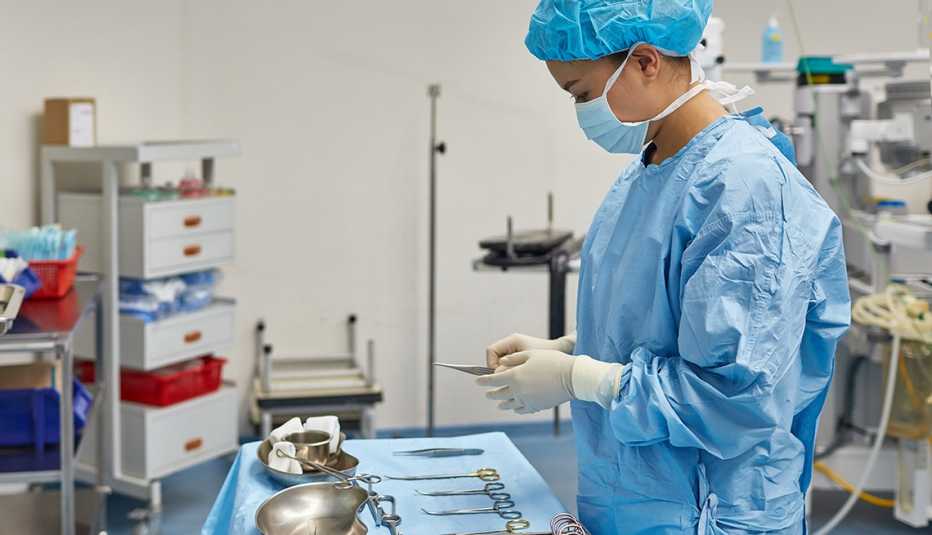Staying Fit


Latest Updates
- Medicare and Medicaid beneficiaries can now get tested for the coronavirus without a written order from a physician, which CMS officials say will expand the availability of COVID-19 screenings.
- Physicans and occupational therapists as well as speech language pathologists can provide telehealth visits, under new orders from CMS. The agency is also allowing patients and medical professionals to hold telehealth sessions over the telephone.
- Communities that are in phase 1 of the administration’s re-opening plan can begin to provide non COVID-19 treatments and elective procedures that have been curtailed since the coronavirus outbreak.
- Coronavirus tests will be available for Medicare beneficiaries who cannot leave their homes, and testing will be ramped up in nursing homes, Centers for Medicare and Medicaid Services (CMS) Administrator Seema Verma said Monday. CMS is making a number of moves to relax regulations on the health care system so, for example, hospitals can treat patients in alternative sites and increase staffing.
- Medicare officials have issued an alert to all beneficiaries that scammers may try to use the coronavirus as an opportunity to steal their identities and commit Medicare fraud. Centers for Medicare and Medicaid officials reminded enrollees that Medicare will never call them to ask for their Medicare number.
- The Centers for Medicare and Medicaid Services recommends that nonessential, elective surgeries and other medical procedures be postponed during the coronavirus outbreak. CMS also asks that nonessential dental exams and procedures be postponed.
- Medicare expands telehealth options so more patients — especially older adults — can get medical advice and care while remaining in their homes and stemming the spread of the coronavirus.
- CMS tells Medicare Advantage and Part D prescription drug plans they can relax copays and other cost sharing when it comes to testing for the coronavirus.
Medicare and Medicaid beneficiaries can now get tested for COVID-19 without a written order from a physician, which will make it easier for individuals to get screenings in drive-up sites and pharmacies.
“Testing is vital, and CMS’s changes will make getting tested easier and more accessible for Medicare and Medicaid beneficiaries,” CMS Administrator Seema Verma said in announcing the change that will be in effect throughout the public health emergency.


AARP Membership— $12 for your first year when you sign up for Automatic Renewal
Get instant access to members-only products and hundreds of discounts, a free second membership, and a subscription to AARP the Magazine.
The announcement means that any health care professional, including pharmacists who are enrolled in Medicare as a covered laboratory, will be able to order the coronavirus test and CMS will pay for it. CMS will also cover tests individuals take at home and some antibody testing to help determine whether someone may have developed an immune response to the virus and therefore might not be at immediate risk for COVID-19 reinfection.
Telehealth options expanded
Patients can now get telehealth services from an expanded group of health care professionals, including physical and occupational therapists and speech language pathologists, under changes CMS officials say will help ensure that beneficiaries don’t have to leave their homes and risk exposure to COVID-19.
CMS is also waiving the requirement that telehealth sessions must be conducted using video technology, meaning Medicare will pay for telephone-only visits, allowing beneficiaries who do not have access to the internet to still communicate with their medical professionals.
Medicare has been gradually ramping up the use of telehealth in recent years. But while Medicare Advantage plans have been allowed to offer liberal telehealth benefits for several years, beneficiaries of original Medicare have had more limited telehealth benefits, amounting to brief virtual check-ins. And beneficiaries would not generally be able to get telehealth services in their own homes. About 40 million Americans are enrolled in original Medicare.
Tuesday’s announcement will allow all Medicare beneficiaries to “see” their doctors remotely for the kind of routine checkups and monitoring of chronic conditions that would normally be done in a provider’s office. A Medicare enrollee, for example, who has diabetes, can now confer with his or her doctor without leaving the house, and a medical professional can order a new medicine or refill a prescription without needing to see the patient in person. Nursing home residents will also be able to have telehealth consultations with their doctors.
And, while regular Medicare copays will apply to telemedicine visits, CMS officials say that during the coronavirus emergency, providers can waive or reduce cost sharing for telehealth visits.
“Clinicians on the front lines will now have greater flexibility to safely treat our beneficiaries.” Verma said in a statement announcing the telehealth expansion.
Medicare releases guidelines for non-COVID-19 care
Hospitals in states that have reached phase 1 of the administration’s reopening plan can begin providing non-COVID-19 care that has been postponed since the outbreak of the coronavirus pandemic, Medicare officials announced late Sunday.
For areas that have fulfilled the federal recommendations to begin phasing in a relaxation of the restrictions designed to slow the spread of the coronavirus, the Centers for Medicare and Medicaid Services (CMS) has issued a set of guidelines for how hospitals can begin to offer medical care not associated with COVID-19.
In March, CMS asked hospitals to stop providing elective surgeries and other procedures not related to the coronavirus to avoid strain on the health care system. The suspension resulted in outpatient surgical facilities mostly being shut down.

































































More on health
New Coronavirus Test to Deliver Rapid Results
Point-of-care testing will help better identify, treat COVID-19 patientsPlanning for Prescription Drugs During the Coronavirus Outbreak
Keeping extra medicine on hand is recommended for people with chronic conditions